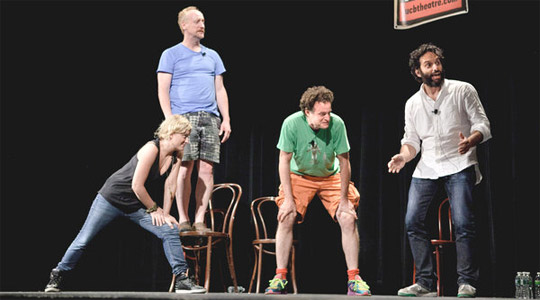
This post does not spoil any specifics of the "plot" in Gone Home, but it might sensitize you to its delivery mechanisms and some details.
A mansion means: old, rich, and scary. The most quintessential "mansion games" that emphasize these qualities might be Maniac Mansion, Thief, and Resident Evil -- these games would not work without the mansion tropes that figure prominently in their game design. Most importantly, mansions are big.
Gone Home is very aware of its place in the mansion genre, a genre that emphasizes the primacy of inventories, objects, and possessions. Here, the lightweight puzzle gating and densely hot-spotted environments evoke adventure; the first person object handling and concrete readables evoke the immersive sim; the loneliness and the shadows evoke horror. In a sense, this is a video game that was made for gamers aware of all the genre convention going on -- in particular, one moment in the library will either make you smile or wince -- but in another sense, this is also a video game made for humans. Gone Home carefully negates or omits core "gameisms" of the very genres it comes from.
The characters in Gone Home are tolerable (or even great) because they do not hesitate in doorways and stare blankly at you. It's the same trick that Dear Esther pulled: fictional characters in games develop full-bodied, nuanced personalities precisely when they're *not* constrained by fully simulated virtual bodies present in the world. (Maybe Dear Esther is actually a mansion game?)














